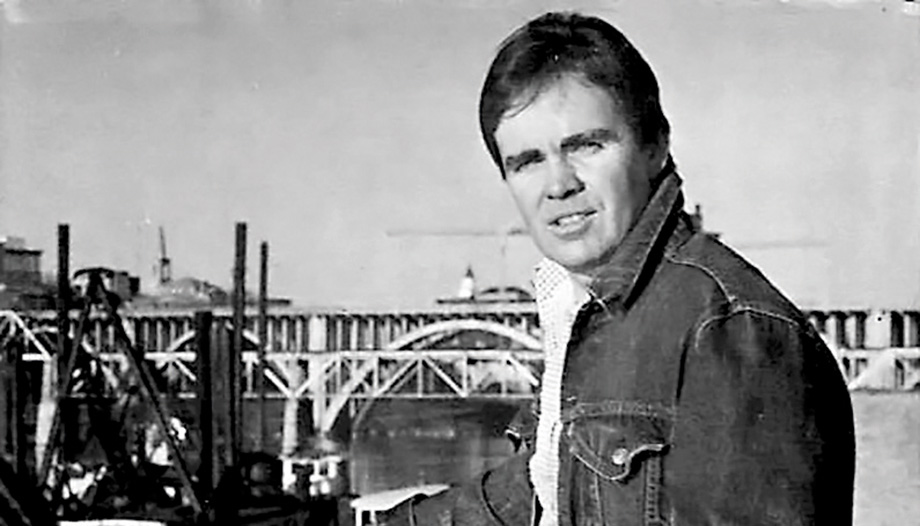On June 13, Cormac McCarthy, one of the most influential American authors of recent decades, died at the age of 89 at his home in Santa Fe, New Mexico. Over the last sixty years he has written twelve novels, five film scripts, two plays and three short stories: a relatively modest output, but one that has had an enormous impact. From our personal experience, we can affirm that the reading of The road (The Road, 2006) -as it is often said of great books- "changes your life", despite its relative brevity (210 pages). It won the prestigious Pulitzer Prize in 2007, was translated into Spanish that same year (Mondadori, Barcelona, 2007) and has not ceased to be republished since then.
The road describes the journey of a father and son in a world in ashes where there is no food, few survivors and the air and water are polluted. In this apocalyptic scenario they are fleeing south on a road dragging a shopping cart with their meager belongings. They are driven by their father's hope of finding a group of people with whom they can stay and live.
McCarthy tells just enough for the reader to enter fully into the scene, but, at the same time, describes only the essentials. Virtually nothing is known of the history of the protagonists. None of the characters have names. Nor is it explained where they are or how they got into this situation. And it doesn't really matter. However, in this fictional context, the reflections on life, death, ethics, goodness, beauty and evil are entirely realistic. There are many angles of interpretation and interpellation. For example, the child can be seen as the theory of ethics: he is always the referent of what is right or wrong. However, the father is the practical application of that theory, and he explains to his son why in that particular case ethics does not apply one hundred percent.
"[...] He looked at the boy but the boy had turned around and was looking towards the river.
- We could not have done anything.
The boy did not respond.
-He is going to die. We can't share what we have because we would die too.
-I know.
-And when do you plan to talk to me again?
-I'm talking now.
-Are you sure?
-Yes.
-Okay.
-Okay." (pages 43-44).
The perspective of fear is also striking. That of the protagonists of The road has an explanation, as other survivors seek them out to kill and perhaps eat them. All of us can share the fear, especially after the pandemic, as we have seen how we behaved when other humans were officially a danger to us, where the air was legally polluted and when going to pick up food could be a deadly risk.
The story makes an impact, the characters make an impact, the metaphors make an impact; McCarthy uses a precise and extensive vocabulary. It's a collection of stamps, each paragraph could be a micro-story in itself.
Why read this book? Just for the way it is written, it is worth it. But it is also a jolt for the reader. On the one hand, because the scenario seems possible. On the other, because the reflections are totally applicable to anyone's life. And also because it seems that sometimes we live in a situation of scarcity: we do not help so as not to lose, we fear other human beings, we feel alone in the world, we live in fear, we are not able to enjoy what we have, we feel we are the good guys, but we do what anyone who is not totally corrupt would do.
McCarthy dedicates the book to his son John Francis and the whole book is imbued with an immense tenderness of the father towards his son in the midst of a terribly hostile world: "I am very grateful to him for his kindness.He was beginning to think that death was finally upon him and that he needed to find a place to hide where they could not be found. As he watched the boy sleep there were times when he began to sob uncontrollably but not at the thought of death. He wasn't sure what the reason was but he thought it had something to do with beauty or goodness." (page 99).
And who, like Viktor Frankl, could explain happiness in the concentration camp? However, if there is hope in The road or in the concentration camp, why sometimes we, who are not in a world in ashes or in a concentration camp, are not able to see it? Hope does not lead us to deny the harsh reality, but it gives us the strength to keep on living, to keep on walking towards the south: the father will die, but the son will probably see a better world.
McCarthy stated in 1992 to The New York Times Magazine: "There is no such thing as life without bloodshed. I think the notion that the species can somehow be improved, so that everyone can live in harmony, is a really dangerous idea.". And in 2009 to The Wall Street Journal: "In the last few years, I've had no desire to do anything but work and be with [my son] John. I hear people talking about going on vacation or things like that and I think, what's that all about? I have no desire to go on a trip. My perfect day is sitting in a room with a blank piece of paper. That's heaven. That's gold and anything else is just a waste of time.".
The road is a book that gives much food for thought. At the end, the reader will find his or her own questions in the book and it is sure to be worthwhile to identify them, even if there were no answers to them.








